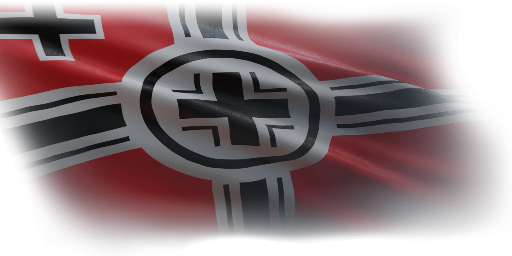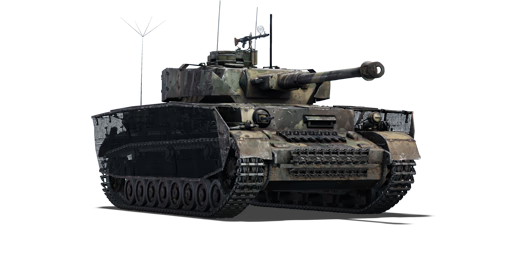The Panzerbefehlswagen IV Ausführung J (Pz.Bef.Wg.IV J) (Sd.Kfz. Index: Sd.Kfz. 161/2) was a special command version of the ninth variant of the Panzerkampfwagen IV medium tank family. The Panzer IV J command variant was produced after March 1944. This variant was modified by removing 15 rounds of 75 mm main gun ammunition and installing a new radio system, which included cables, transformers, and junction boxes. A GG400 auxiliary power generator was also installed. The Fu 8 (medium wave receiver) and Fu 5 (ultra-short-wave receiver) were the new radio sets. A Sternantenne D (Star aerial) for the Fu 8 was installed on the rear of the hull, while the conventional 2-meter antenna for the Fu 5 was installed on the roof of the turret in place of the Nahverteidigungswaffe grenade launcher. There was also a T.S.R.1 observation periscope and an SF14Z periscope scissor attached. The SF14Z could be installed inside the cupola, where the commander could see the battlefield through the open hatch. The T.S.R.1 was a long stick periscope located on the turret roof near the commander's cupola that could be extended via a pivoting support. Only 17 Pz.Bef.Wg.IV J tanks were manufactured from scratch, while the remaining 88 were modified from pre-existing Panzer IV J tanks.
Introduced in Update 1.43, the Pz.Bef.Wg.IV J variant is a special modification from the original Panzer IV J variant. To compensate for the Panzer IV J variant's missing 5 mm Schürzen side skirts, steel mashes known as Thoma-Schürzen were fitted in their place. While the steel mashes may protect the player from the occasional early HEAT ammunition, particularly from the M4A3 (105) from specific angles, they should not be relied on to exchange fire with adversaries. The original single-speed electric power drive for the turret traverse remains unavailable, and the turret traverse must be hand-cranked by a two-gear manual traverse. The three radio antennae serve no purpose in the game and are merely aesthetic decorations. Overall, it is a medium tank with a playstyle comparable to the Panzer IV J that should be played cautiously.











 2 x (85 / 140 / 165) %
2 x (85 / 140 / 165) % 
 2 x 154 %
2 x 154 % 
